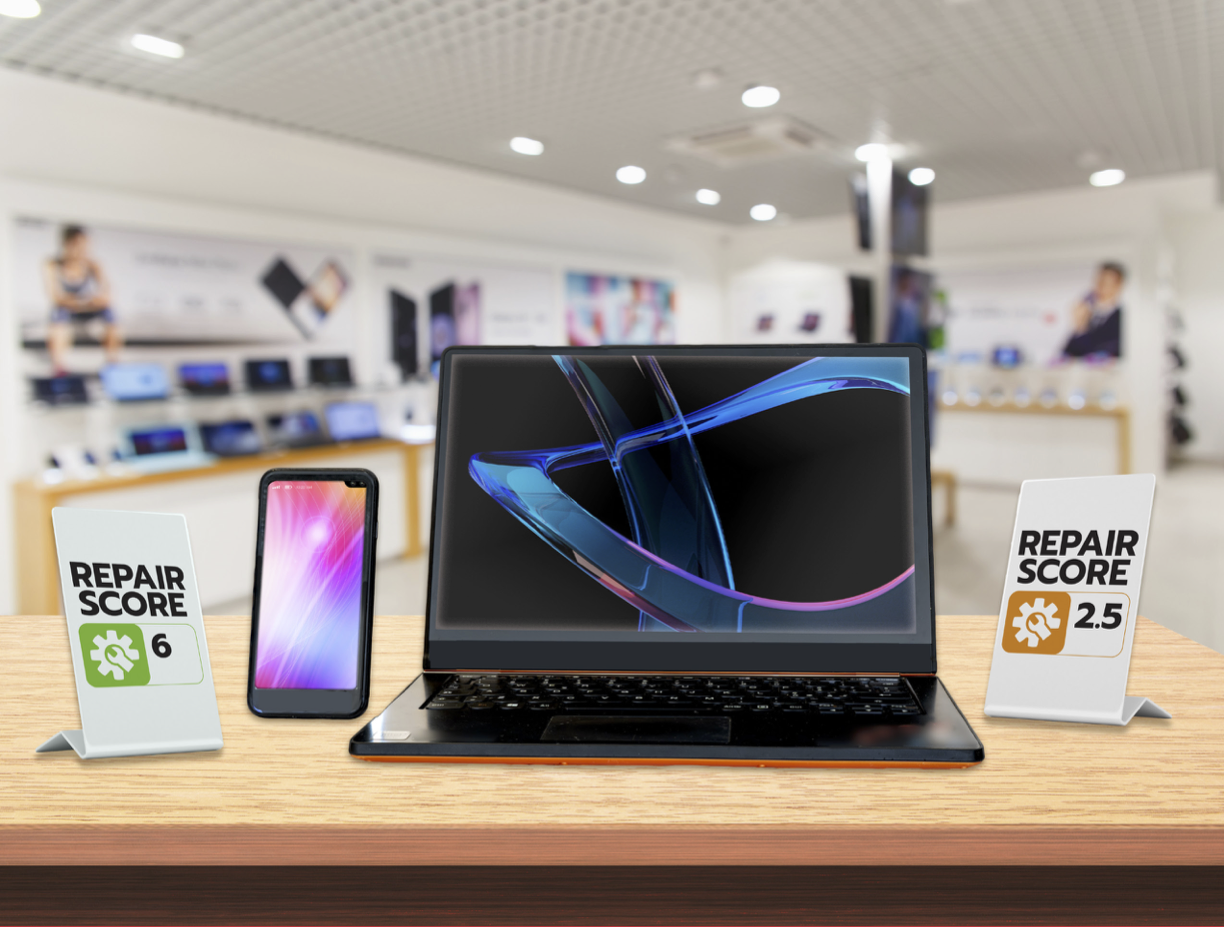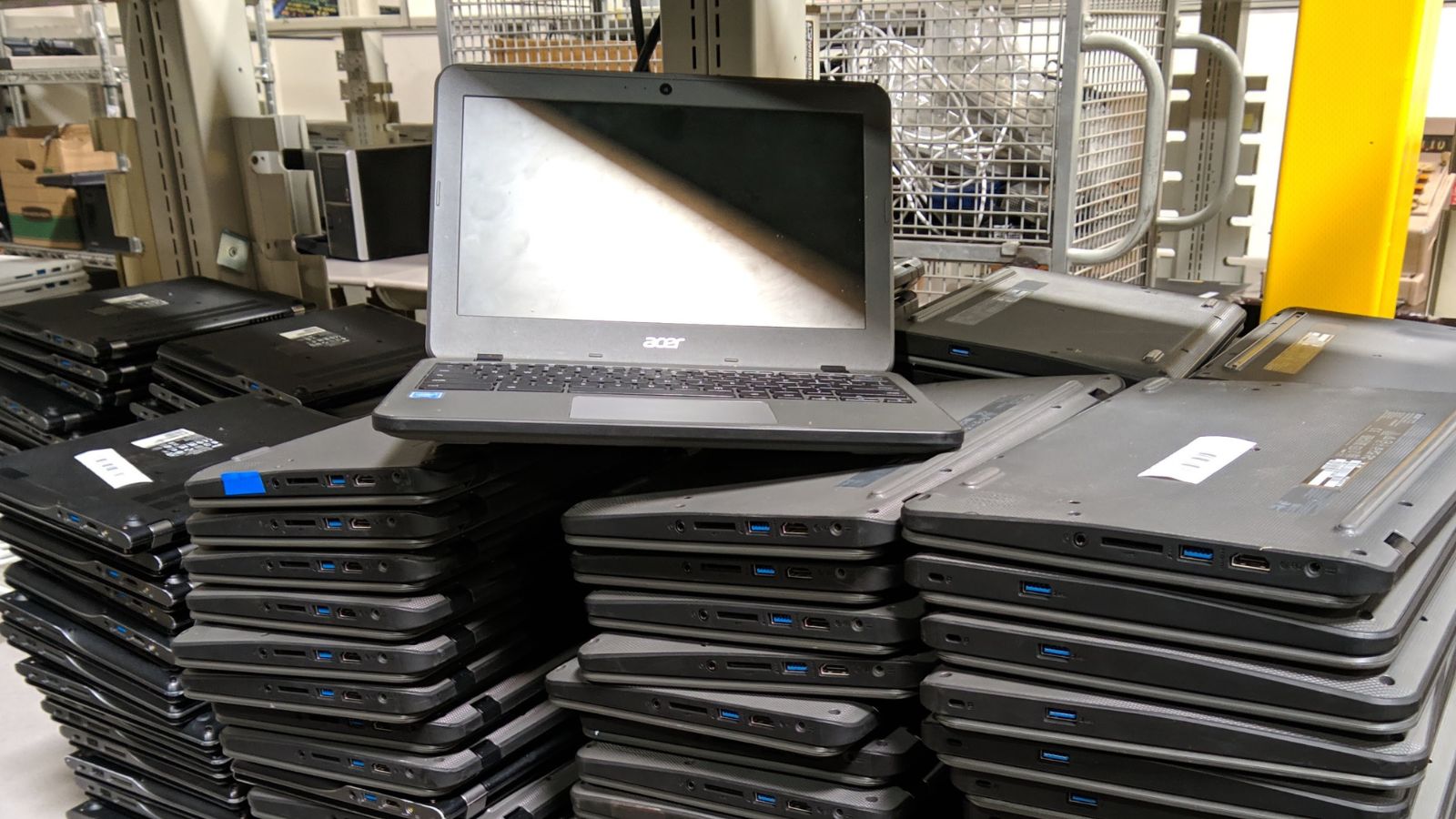
Testimony: Maryland Right to Repair
We support HB84/SB412, Right to Repair, or as we call it, the “Just Let us Fix our Stuff Act.”

We have testified in support of Right to Repair. a bill sponsored by Delegate Jessica Feldmark and Senator Katie Fry Hester. You can learn more about the bill here. This is our testimony.
We support HB84/SB412, Right to Repair, or as we call it, the “Just Let us Fix our Stuff Act.”
In order to repair an electronic device, whether it be a smart phone, a washing machine, a computer enabled tractor, or a ventilator, repair technicians need some basic things: Spare parts, repair documentation (like schematics and manuals), diagnostic software and any special tools.
But when the companies that make our stuff block access to all of those essential things, repair becomes difficult — and in many cases only the manufacturer or their “authorized” repair technicians can do the repairs.
Manufacturers essentially have a monopoly on repairs. When only the manufacturer or their ‘authorized technician’ can fix something, they can charge whatever they want or they can say “it can’t be fixed” and push you into buying a new device. They do both.
How Right to Repair Policies Work
Right to Repair requires manufacturing companies to make the diagnostic tools, manuals, replacement parts and tools available to the user or a third party available at a fair price. These are the critical things repair shops and consumers need to fix broken things.
The statute is adapted from the “Right To Repair” agreement for cars — so we know the structure of the law works. The automotive industry agreed to these terms in 2014. There have been no ill-effects from the application of this law, and consumers have the option of taking their car to whichever mechanic they choose.
As the COVID-19 pandemic has laid bare, repair affects many aspects of our lives:
- School districts in Maryland experienced massive laptop shortages as they shifted to e-learning. Repair rights would help close the digital divide, enabling schools to maintain and refurbish equipment, saving taxpayers money and expanding digital access.
- As ventilators and other hospital equipment was pressed into service, health care providers struggled to maintain their devices. Maryland Treasurer Nancy Kopp joined the call pushing reluctant manufacturers to share repair information for ventilators.
- As Marylanders struggle with the financial fallout of the COVID-19 economic crisis, repair rights are estimated to save Marylanders $735 million per year, leaving more money in consumer pockets, and more money recirculating in the local repair economy instead of going overseas.
Protecting property rights and trade secrets.
This policy does not infringe on copyright, intellectual property, or warranty protection. Repair is already specifically legal under both copyright and patent law. Right to Repair does not, and cannot, alter federal law, and none of the diagnostic tools and data enabled by this law would increase access to proprietary property.
Trade secrets are specifically disclaimed in the statute. Manufacturers don’t give access to trade secrets to their own technicians, and we aren’t asking them to do so here.
Protecting consumers’ warranty.
This bill does not impact warranty. Most electronic repairs covered by this bill aren’t under warranty. If they were, they would probably take the equipment back to a manufacturer so they don’t have to pay for the repair (that’s the whole point of a warranty, after all).
For repairs that aren’t covered by warranty, but the product is, federal law already enables consumers to seek 3rd party repair without impacting warranty and this bill does not change that. ALl this bill does is make those repairs more likely to be successful.
Repair ensures safety.
Manufacturers have built their repair tools, parts, and diagnostics to be used by minimally trained technicians in order to control labor costs. These same parts, tools, and diagnostics can be used with equal outcomes by any trained technician. There is no empirical support for the idea that manufacturer repair is safer than any of their competitors. This is true for all devices from medical equipment to tractors.
Repair makes our world more secure.
Cybersecurity experts at Harvard’s Berkman Klein Center for Internet & Society have testified that Right to Repair increases cybersecurity, a position echoed by leading industry experts which have formed the group SecuRepairs.
In restricting access to the materials consumers need to fix their devices, manufacturers prevent them from carrying out necessary maintenance. This creates a lapse in security, and an opportunity for malicious actors to attack.
We respectfully request a favorable report.

Topics
Authors
Emily Scarr
State Director, Maryland PIRG; Director, Stop Toxic PFAS Campaign, PIRG
Emily directs strategy, organizational development, research, communications and legislative advocacy for Maryland PIRG. Emily has helped win small donor public financing in Baltimore City, Baltimore County, Howard County, Montgomery County, and Prince George's County. She has played a key role in establishing new state laws to to protect public health by restricting the use of antibiotics on Maryland farms, require testing for lead in school drinking water and restrict the use of toxic flame retardant and PFAS chemicals. Emily also serves on the Executive Committees of the Maryland Fair Elections Coalition and the Maryland Campaign to Keep Antibiotics Working. Emily lives in Baltimore City with her husband, kids, and dog.
Find Out More

‘Failing the Fix’ scorecard grades Apple, Samsung, Google, others on how fixable their devices are

Fixed for the Holidays

Green schools guide

